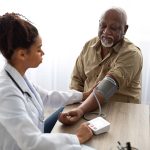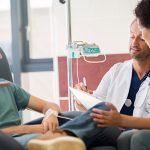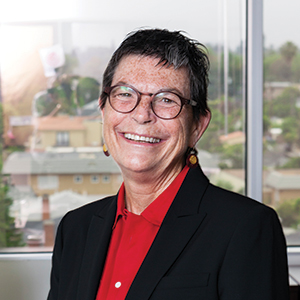-
July 28: The Week in Cancer News
Less than four minutes of physical activity per day linked to lower cancer risk, and vaccination helped improve outcomes for cancer patients with COVID-19.
by Thomas Celona
-
July 21: The Week in Cancer News
ASCO guideline emphasizes the importance of assessment for older cancer patients, and a change in mammogram recommendations reignites screening debates.
by Eric Fitzsimmons
-
July 14: The Week in Cancer News
Black men with melanoma have higher risk of dying, and CAR T-cell therapy provides hope for aggressive lymphoma.
by Marci A. Landsmann
-
After Colorectal Cancer, Survivors Face Higher Risk for a Second Cancer
Researchers find increased risk of four types of secondary cancer in patients diagnosed with early-onset colorectal cancer.
by Sandra Gordon
-
July 7: The Week in Cancer News
Reducing cancer treatment to improve quality of life without lowering effectiveness, and death rates are climbing for certain cancers in Hispanic Americans.
by Kevin McLaughlin
-
Susan Love, Breast Surgeon and Patient Advocate, Dies at 75
Love co-wrote Dr. Susan Love’s Breast Book and was vocal in promoting improved breast cancer diagnosis and treatment.
by Kevin McLaughlin
Cancer Talk
Connecting More Patients to Cancer Clinical Trials
AACR conference brings experts together to discuss strategies to reach people historically left out of cancer research.
by Eric Fitzsimmons
Treatment Combination Improves Survival in EGFR-positive Lung CancerAdding chemotherapy to targeted therapy improves outcomes for people with advanced EGFR-positive non-small cell lung cancer.
by Sandra Gordon
Lessons From 20 Years Living With CancerMultiple myeloma survivor Jonathan Gluck reflects on uncertainty, and the scientific progress that has kept him living with cancer for more than two decades.
by Eric Fitzsimmons
The Enduring Importance of Cancer Disparities ResearchOpening session from AACR conference highlights how perseverance and adversity have informed cancer disparities research over the years.
by Eric Fitzsimmons










